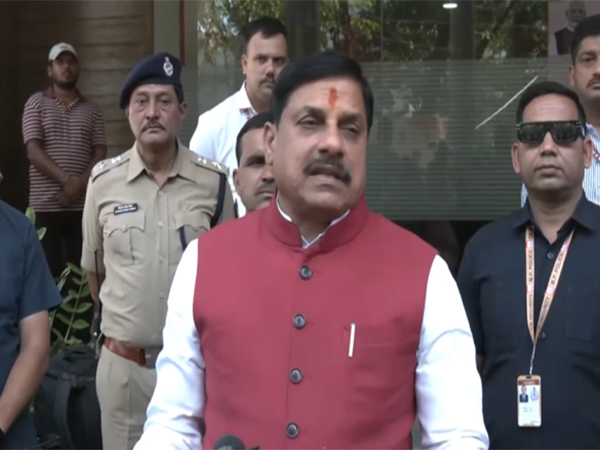Pakistan jolts all-weather ally China, warns its app TikTok, blocks Bigo Live
Jul 23, 2020

Islamabad [Pakistan], July 23 : China's all-weather friend Pakistan has given a big jolt to the business ambition of Chinese tech firms in the country.
In an unprecedented move, Pakistan now has blocked the Bigo Live streaming application and issued a "final warning" to video-sharing app TikTok over obscene and immoral content on these Chinese platforms.
The Chinese business interests are witnessing a heavy pushback from an unlikely quarter, Pakistan, in recent times, where Beijing has invested billions of dollars.
The Pakistani establishment's unhappiness with theses Chinese social media applications is not overtly linked to security or geopolitical issues like India that banned 59 Chinese apps on security grounds.
It's not just India though. The United States is also seriously mulling a ban on TikTok, alleging that it's a front for data mining and all user data is shared with the Chinese government. TikTok is under scrutiny in Australia too for similar reasons.
So even if there are security or privacy concerns over Chinese apps in Pakistan, these would never be publically acknowledged by Islamabad.
Pakistan is instead worried that the content on these applications is 'objectionable' that influences youths negatively.
On July 2, Pakistan Telecommunication Authority (PTA), in a statement, said that it has received numerous complaints from different segments of society against immoral, obscene and vulgar content on social media applications particularly TikTok and Bigo and their extremely negative effects on the society in general and youth in particular.
In its order, the PTA said, "In the exercise of its powers under PECA, PTA has decided to immediately block Bigo and issue a final warning to TikTok to put in place a comprehensive mechanism to control obscenity, vulgarity and immorality through its social media application."
The order also said that PTA had issued necessary notices to the aforementioned social media companies under the law to moderate the socialisation and content within legal and moral limits, under the laws of the country.
Pakistan's telecom regulator said the response of these companies was "not satisfactory".
An application was filed in Lahore High Court earlier this month demanding an immediate ban on TikTok.
The petitioner said that the app was "great mischief of modern times" and had become a source of spreading pornography for the sake of fame and ratings on social media.
The momentum against the Chinese app appears to be gathering pace.
A resolution was also submitted in the Punjab Assembly on July 6, calling for a ban on TikTok in Pakistan. There is also a petition doing the rounds on change.org, calling for its ban.
"The app should be banned in Pakistan because it shows very inappropriate videos to children and could give them the wrong idea when it comes to consent and respect towards women and other races," the petition addressed to the government of Pakistan says.
TikTok, owned by Chinese company ByteDance, is one of the world's most popular social media apps, with over 2 billion downloads globally. In Pakistan, it has been downloaded almost 39 million times and is the third-most downloaded app over the past year after WhatsApp and Facebook.
Registered in Singapore and owned by Chinese company YY Inc, which owns the live video streaming app Bigo Live has been downloaded over 17 million times in Pakistan and is the 19th most downloaded app in the country.
Though Pakistan is a conservative Islamic country, it shares a very close relationship with Communist-ruled China. Pakistan counts China as its largest investor and most reliable ally in a bid to counter India. The two apps are not the first to be targeted by the Islamabad. Earlier in the month, Pakistan has banned the hugely popular online game, PUBG, linked to China.
On July 1, Pakistan banned Player Unknown's Battlegrounds (PUBG), which had over 16 million users in the country, saying it was addictive, a waste of players' time and was harming the mental and physical health of the country's youth.
While the PUBG game developed by a Korean game-maker company Bluehole, the mobile version of the game was developed by Tencent, a Chinese conglomerate.
Bluehole joined hands with Tencent, which went on to introduce the mobile version of the game.
As far as the origins of the game go, it remains a Korean product.
















